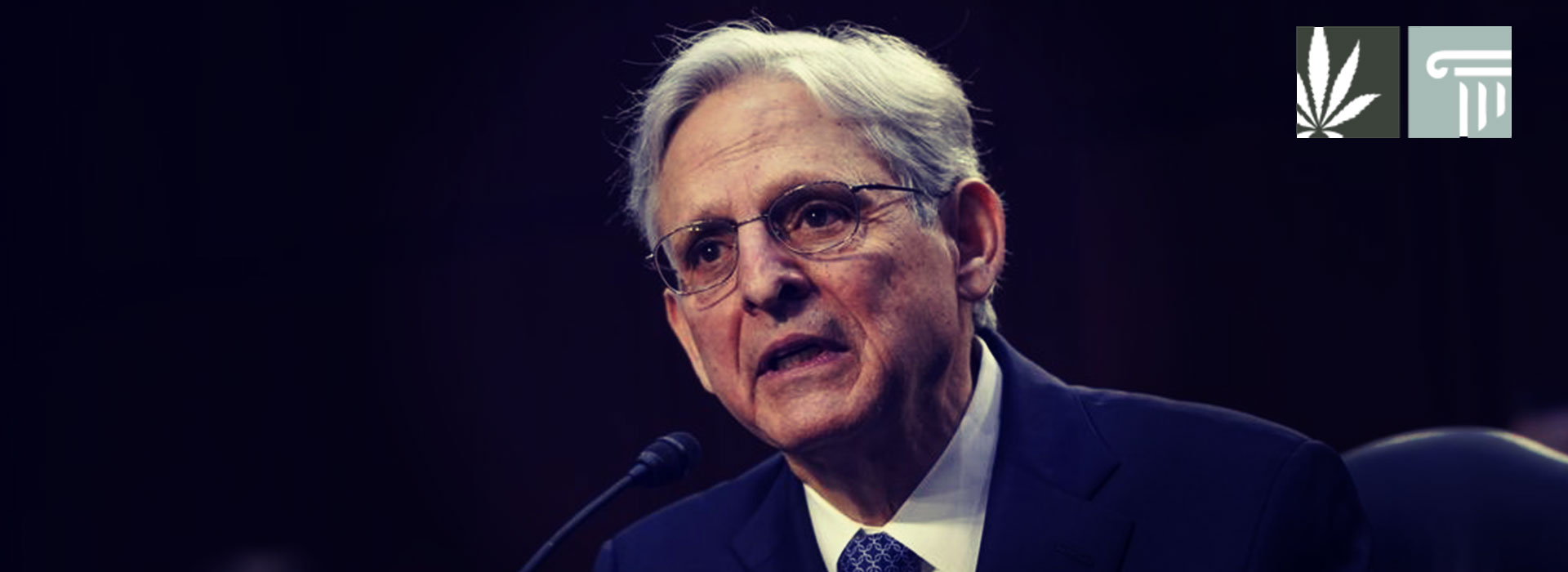Enforcing federal marijuana laws in states that legalized the plant is not “a useful use of limited resources” said President Joe Biden’s pick for attorney general during his confirmation hearing before the Senate Judiciary Committee.
Judge Merrick Garland, who until now has been largely silent on the issue of cannabis reform, went on to describe marijuana criminalization as the “perfect example” of how the criminal justice system is racially discriminatory, since enforcement of cannabis laws typically fall hardest on people of color.
Watch Judge Merrick Garland talk about marijuana enforcement from 03:05:46
“It does not seem to me a useful use of limited resources that we have to be pursuing prosecutions in states that have legalized and are regulating the use of marijuana, either medically or otherwise,” Merrick said under questioning from Sen. Cory Booker (D-NJ). “I don’t think that’s a useful use.”
“One of the big things driving arrests in our country – stunningly to me even that it is still the case – is marijuana arrests. We had in 2019 more marijuana arrests for possession than all violent crime arrests combined,” said Booker, one of the top Senate lawmakers pushing for federal legalization. He then noted people of color make up a disproportionate percentage of those arrested even though white people use cannabis at a similar rate.
“Is that evidence that within the system there is implicit racial bias?” Booker asked.
“That’s definitely evidence of a disparate treatment in the system, which I think does arise out of implicit bias—unconscious bias maybe, sometimes conscious bias,” Garland responded. “This is a particular part of the reason why, at this moment, I think I wanted to be the attorney general.”
“Here’s a non-violent crime with respect to usage that does not require us to incarcerate people, and we’re incarcerating at significantly different rates of the different communities,” Garland added. “That is wrong, and it’s the kind of problem that will then follow a person for the rest of their lives. It will make it impossible to get a job, it will lead to downward economic spiral for their family.”
When asked by Booker what he would do about this “outrageous injustice,” Garland said there are many things the Justice Department could do, but highlighted reallocating resources away from targeting marijuana possession toward tackling violent crimes. He also suggested reviews and reforms of sentencing guidelines to ensure people do not receive long sentences for nonviolent crimes.
Garland’s position largely aligns with that outlined in the Cole memorandum, which was first introduced under the Obama administration and instructs federal prosecutors not to interfere with individuals and businesses complying with state marijuana laws. The Cole memo was later rescinded by Jeff Sessions, President Donald Trump’s first attorney general. Sessions’ replacement, William Barr, urged Congress to resolve the state-federal cannabis policy conflict but didn’t take any meaningful action of his own.
Judge Garland, who was nominated by President Obama to the Supreme Court but had his route blocked by Senate Republicans, does not have much of a record on cannabis to speak of, though he has indicated a belief that the DoJ should defer to the Drug Enforcement Administration when it comes to drug scheduling.
Following his hearing, it appears Garland’s views on marijuana policy largely align with Biden’s on the matter. Both are in favor of non-interference in state-legal marijuana programs and both believe low-level cannabis possession should not result in prison time.






